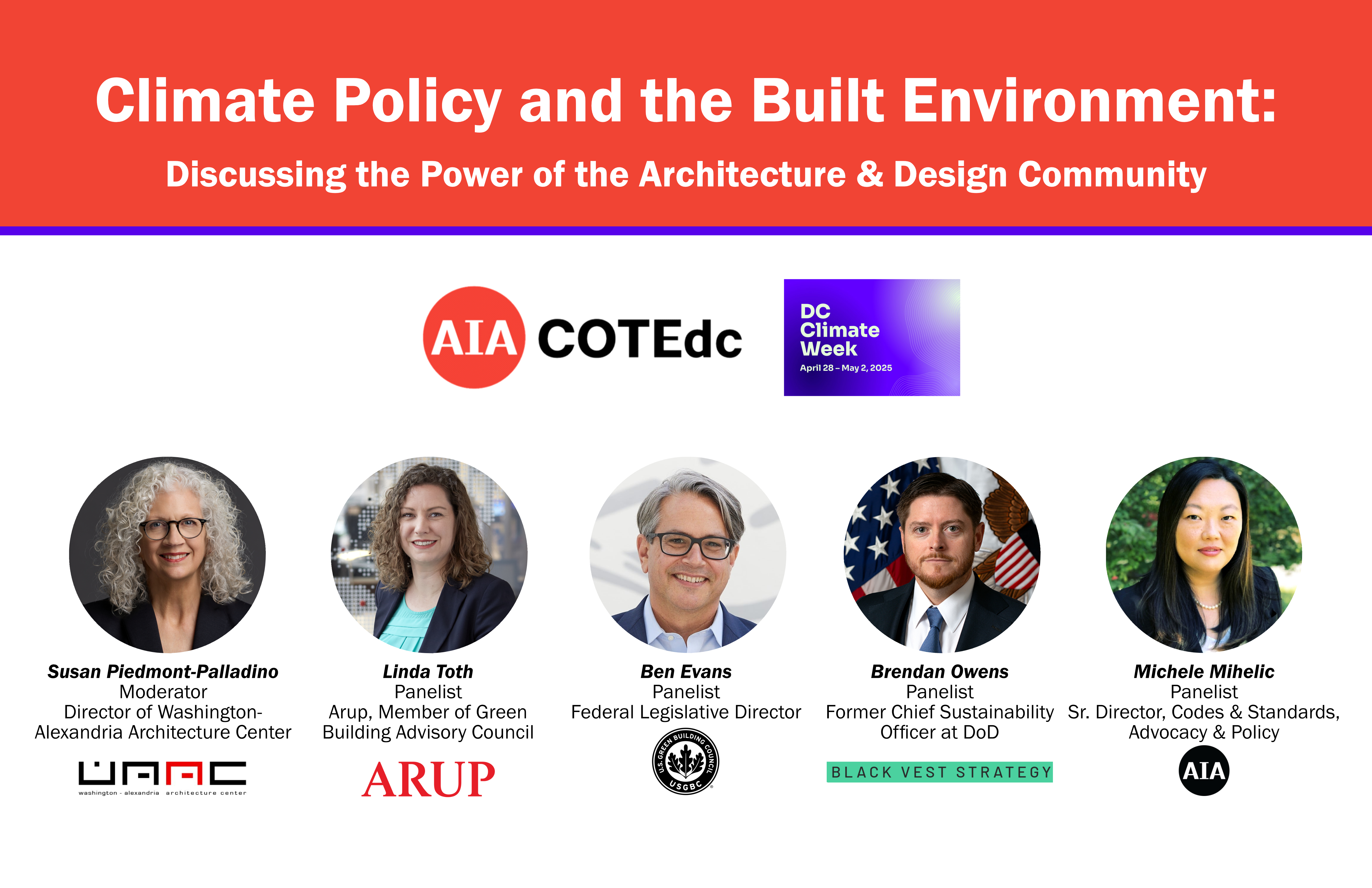-
Date
Thursday, May 01 2025
-
Time
5:30pm - 8:00pm
-
Location
Are you wondering how changes at the federal level will affect the environmental endeavors of the design and construction industry? The built environment is responsible for as much as 40% of annual global carbon emissions and has direct impacts on our natural environments, community wellness, and human health. Over the past few decades, both public and private efforts have aimed to reduce this impact. AIA|DC’s Committee on the Environment invites you to attend this panel discussion bringing together experts with experience in private architecture and engineering firms, academia, legislative advocacy, and local DC and federal government programs. Conversation will focus on how we can continue making positive change, including adapting strategies and messaging apart from political affiliations, collaborating on shared efforts, and discussing how others beyond the federal level can carry on the mission for climate action.
We are excited to present this event in coordination with DC Climate Week!
Presented by:
Susan Piedmont-Palladino, Architect and Director of the WAAC
Linda Toth, Arup and on DC GBAC
Ben Evans, USGBC Federal Legislative Director
Brendan Owens, Former Chief Sustainability Officer at DoD
Michele Mihelic, AIA National, Sr. Director, Codes & Standards, Advocacy & Policy
Learning Objectives:
- Understand why architects are important to the mission for a sustainable and equitable future, and how we can drive climate action impacts/change.
- Discuss how to adapt our communication so that design impacts and value are recognized by all stakeholders.
- Examine how sustainability, resiliency, and climate change mitigation impact security and economic measures, such as emergency utility and shelter disruption, workforce instability, insurance risks, tax impacts, and short vs long term costs.
- Discuss ways the building industry can work together, including on state and local policy measures, grass roots advocacy, codes & standards, and taking advantage of the global reach of private American industry.

